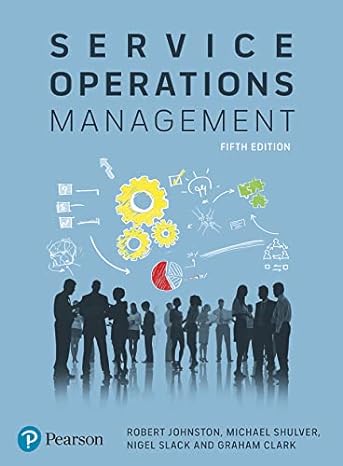When the management thinker and writer Charles Handy suffered a stroke, he had to spend time in
Question:
When the management thinker and writer Charles Handy suffered a stroke, he had to spend time in hospital as he learned to walk, talk and even swallow again. He said that the experience taught him a valuable lesson about process objectives. As far as Mr Handy was concerned, the point of his hospital stay was to allow him to recover as fully as possible.
That meant he needed to be up and about. In the view of the nurses, that was a potential problem;
he might fall and hurt himself. Their priority was to keep him safe. In practice, that required him to stay in bed and keep out of trouble. He called this the
‘curse of efficiency’ – organisations focus so much on efficiency that they fail to be effective. Instead of concentrating on their core goal, they pay attention to narrower measures such as cutting costs, or reducing the inconvenience suffered by their staff.
(a) What other examples of this phenomenon can you identify?
(b) How might it be avoided?
Step by Step Answer:

Service Operations Management
ISBN: 978-1292064468
5th Edition
Authors: Robert Johnston ,Michael Shulver ,Nigel Slack ,Graham Clark





